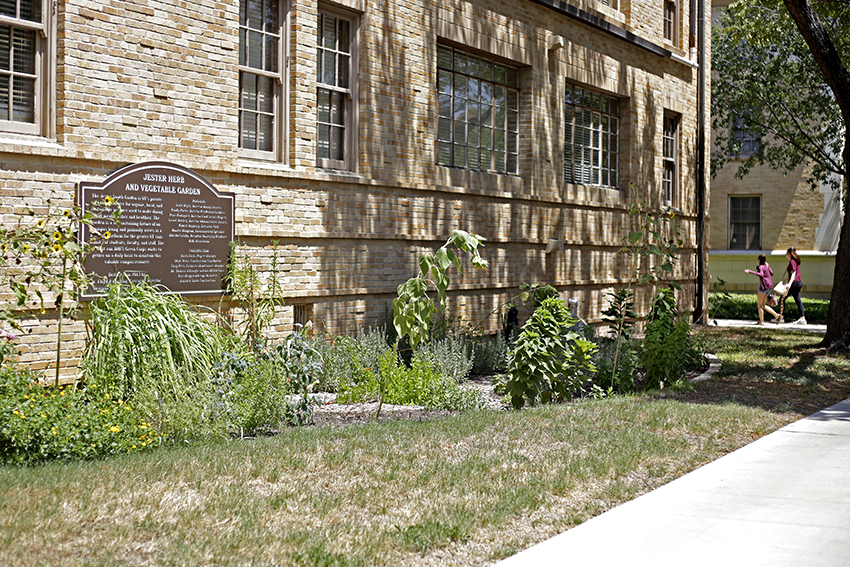A patch of native plants ranging from esperanza to sage sits behind Jester Dormitory, inviting bees and butterflies to pollinate them.
The pollinator garden was created a year ago by UT Farm Stand, a club that sells local organic produce, but it is now part of a larger effort to have the entire UT campus certified by Bee Campus USA.
Bee Campus USA is an organization that promotes pollintor awareness by certifying American campuses that complete a specific set of requirements.
Hannah Walsdorf, who is designing a sign for the garden, said for the club to become certified by Bee Campus USA, it must set up signage with information on pollinator spaces, such as those the club will set up outside the garden.
“We knew (the garden) was there but there weren’t any signages letting people know what was there,” studio art senior Walsdorf said. “I created a basic work up of the sign that they gave to (the school’s designer) who created this really big nice sign that we’re going to put up over there.”
Other requirements to get Bee Campus USA certified include hosting informational events and sponsoring service projects on campus.
The idea for the garden originally came about after a student investigating pollinators and beekeeping decided a patch of pollinator attracting plants could help the club’s vegetable garden, said Neil Kaufman, University Housing and Dining’s sustainability coordinator.
“We get higher yields when we encourage pollinators to be in that area,” Kaufman said. “We’re also doing our part to preserve pollinators as a part of our ecosystem.”
English senior Cheryl Meredith, who works extensively with the garden, said it is intended to promote the growth of native pollinator populations.
“We kind of had in mind to have a beehive there, but due to University policy, (we couldn’t because) there’s a lot of liability to have a beehive on campus,” Meredith said. “So we decided to have it be a full pollinator garden to support bee populations and butterfly populations.”
The garden houses mostly native plants grown from seeds purchased from an Austin plant nursery. Surrounding the plants are an outcrop of weeds, which promote a more natural ecosystem for the pollinators to work in, Kaufman said.
“It’s a natural space, so it’s pretty low maintenance,” Kaufman said. “A lot of the weeds that grow in there are themselves pollinators, so we try to foster that approach to gardening.”



















